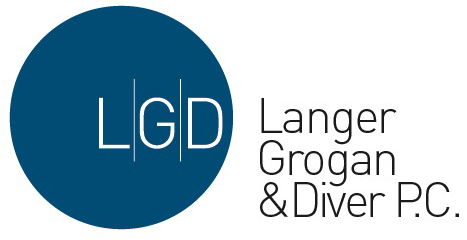Langer Grogan & Diver P.C., alongside co-counsel Cohen Milstein Sellers & Toll, has filed an antitrust class action accusing 32 top colleges and universities and related organizations of conspiring to inflate the cost of higher education through the collective enforcement of Early Decision admissions policies.
An antitrust class action lawsuit filed today in the U.S. District Court for the District of Massachusetts accuses some of the nation’s most prestigious colleges and universities of participating in an illegal conspiracy to inflate the cost of higher education through the collective enforcement of Early Decision admissions policies.
The complaint, filed by three students and a recent graduate, names as defendants 32 elite colleges and universities, two major college application platforms, and a private, highly secretive membership-only organization of private liberal arts colleges and universities, whose stated purpose is to share admissions and financial aid information among its members.
Under Early Decision, students must agree to attend a specific institution if admitted, forfeiting the ability to consider competing offers or compare financial aid packages. The lawsuit alleges that schools that participate in the Early Decision scheme entered into a coordinated agreement not to recruit or admit students accepted through Early Decision elsewhere despite their shared understanding that Early Decision offers are not legally binding.
According to Jude Robinson, a named plaintiff and current Vassar College student, “It does not seem fair that, in order to put my chances of admission on a level playing field with my peers, I had to give up the right to compare the cost of attendance at different schools. I thought I would get more financial aid than I did, but I never got a chance to weigh other options.”
The students allege that under the current Early Decision system, the colleges lock Early Decision candidates into commitments before they can see the price of attendance. These commitments, which the schools misleadingly present as binding agreements, prevent students from weighing their options and seeing what competing institutions might offer in financial support. This allows the schools to charge higher prices and disproportionately harms students from middle- and lower-income families.
“Early Decision is widely recognized to be unfair and harmful to students, even by the schools themselves,” Edward Diver, partner at Langer Grogan & Diver P.C., which represents the plaintiffs. “It’s also a textbook antitrust violation—a horizontal agreement between competing schools not to compete.”
In addition to 32 named colleges and universities—including Columbia University, Cornell University, Duke University, and the University of Pennsylvania—defendants include the Consortium on Financing Higher Education (COFHE), Common Application Inc., and Scoir Inc., which operates the Coalition App. The students allege that these entities facilitated the information sharing and policy coordination among the school defendants, which contributed to artificially inflated tuition and suppressed financial aid.
“Early Decision applicants lose choice and negotiation leverage, while Regular Decision applicants are left to scramble for an artificially diminished number of admission slots doled out at lower acceptance rates. We contend that all of this is only made possible by an agreement not to compete that violates bedrock antitrust law,” Benjamin Brown, co-chair of the Antitrust practice and managing partner at Cohen Milstein Sellers & Toll PLLC, who also represents the plaintiffs.
The antitrust class action seeks an injunction to end the use of binding Early Decision, past damages for students forced to pay more than they would have, and broad structural reforms in how colleges conduct admissions and deliver financial aid going forward.
“The defendants know Early Decision hurts the students with the fewest resources – they’ve said so themselves. We believe that transparency and competition – not secrecy and collusion – should govern college admissions.” Peter Leckman, partner at Langer Grogan & Diver P.C.
“At a time when higher education is more expensive than ever, learning of this scheme among elite schools and organizations was disheartening,” said Alayna D’Amico, a recent graduate of Wesleyan University and named plaintiff. “I hope this lawsuit puts an end to practices that hurt hardworking students and families.”
LGD attorneys, Edward Diver, Peter Leckman and Kevin Trainer, represent the students alongside co-counsel Cohen Milstein Sellers & Toll.
D’Amico v. Consortium on Financing Higher Education, et al., No. 25cv12221 (ED Mass).
The Washington Post: Elite colleges conspire to use early admissions to inflate costs, lawsuit says

